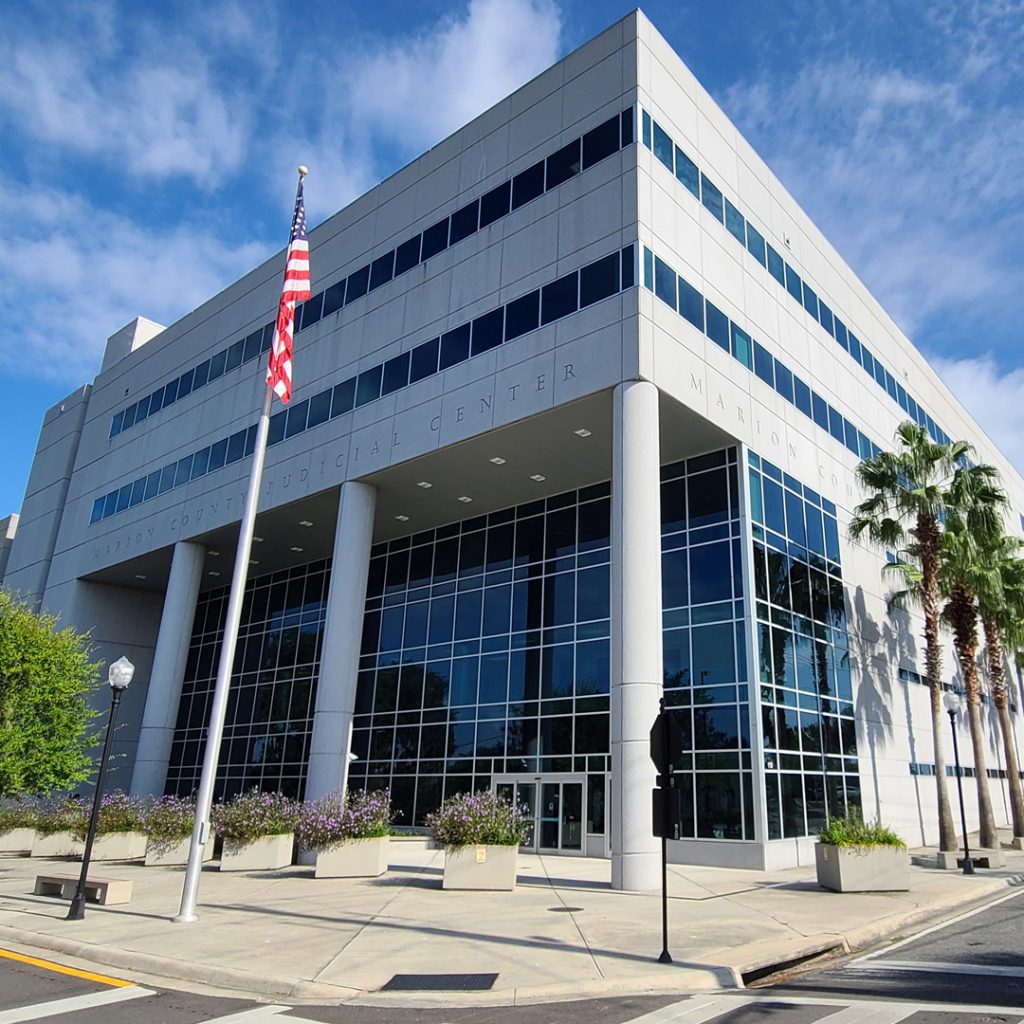Amid COVID budget woes, Ellspermann urges overhaul of court funding mechanism

The Marion County Judicial Center is shown in Ocala, Fla. on Wednesday, August 5, 2020. [Bruce Ackerman/Ocala Gazette] 2020.
Marion County’s top court official is calling for an overhaul of how the court system is funded, as the coronavirus pandemic constricts revenue and impedes many vital court operations.
Clerk of the Circuit Court David Ellspermann, in a July 28 letter to Circuit Judge Edward Scott, the top administrative judge in the 5th Judicial Circuit, said a nosedive in the number of traffic tickets – down 28 percent this year — is stressing his budget.
Consequently, his staff’s ability to oversee many essential court actions has been compromised.
Ellspermann explained that many types of cases do not have filing fees attached, and thus the court system relies on revenue from traffic citations for funding.
Those include criminal cases (both felony and misdemeanor); domestic violence; risk protection orders; civil, family and probate cases where the petitioner lacks the income to pay a filing fee; Baker Act and Marchman Act cases, where people are involuntarily committed for mental health matters or substance abuse; and juvenile cases.
During “normal times,” he wrote, the underpinning for this system is the 450 tickets law enforcement officers throughout Marion County write each week on average.
When COVID-19 raged the worst, that volume plunged to a low of 58 tickets in one week, he noted. Over the last month, the weekly average has run about 240.
As a result, for the last quarter of the fiscal year, which ends Sept. 30, the clerk’s office faces slashing $475,000, or 21 percent, from its budget.
Ellspermann noted he tried to delay the impact. He implemented a hiring freeze in March that has left seven necessary jobs vacant, and he has shifted staff around.
Still, meeting the budget will require laying off or furloughing the equivalent of 2,080 hours over the next nine weeks, according to the letter.
That will affect the workload of every employee, he maintained, and have an adverse impact on how effectively cases are processed.
And when the pandemic-related restrictions are relieved, the court staff will be flooded with unresolved cases, especially foreclosure, eviction and criminal actions, Ellspermann added.
In reshaping the priorities, civil, probate and family cases will be processed with less urgency. “Obviously,” he wrote, “this will frustrate citizens who expect their cases to be processed in a timely manner.”
Ultimately, though, Ellspermann is urging policymakers to consider overhauling the funding mechanism to brace the system for the long haul.
“The purpose of this letter,” he noted, “is to make you aware of the current situation and to plead with you to help fix this broken funding model for Clerks and ask the Governor for emergency funding” — a request that Tallahassee has ignored so far.
“It is simply unsustainable to continue trying to fund essential court operations through citizens who receive traffic citations,” Ellspermann concluded.
“Our government’s responsibility is to provide a responsive court system. Together, I know we can find a funding solution that can be sustainable for years to come.”
According to the Marion County Bar Association, Ellspermann also sent the letter to Circuit Judge Daniel Merritt, chief judge of the 5th Circuit. Neither Merritt nor Scott could be reached for comment.





